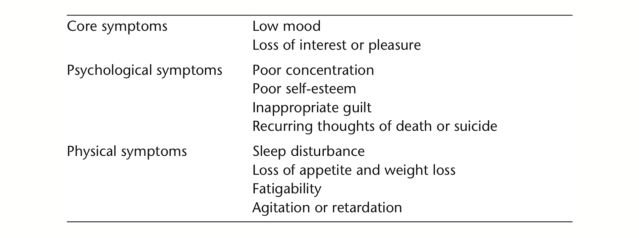Depression
Has the Concept of Depression Been Overextended?
When the label of "depression" might be unhelpful.
Posted June 2, 2023 Reviewed by Tyler Woods
Key points
- More and more people are being diagnosed with depression.
- Many of these people may not be suffering from a biological illness of the brain.
- The belief that they are may prevent them from addressing the real-life problems that underlie their distress.

Many people use the word “depression” to refer to normal disappointment or sadness, and there can be little doubt that the concept of depression as a mental disorder, that is, a biological illness of the brain, has been overextended to include all manner of human suffering.
The concept of depression as a mental disorder may be helpful for the more severe cases treated by hospital psychiatrists (medical doctors such as myself who specialize in the diagnosis and treatment of mental disorders), but probably not for the majority of cases, which, by and large, are mild and short-lived, and readily interpreted in terms of life circumstances, human nature, or the human condition.
Figures for the lifetime prevalence of depression (the chance of any one person developing depression in the course of his or her lifetime) vary according to the criteria used to define “depression,” that is, according to where we decide to draw the line between normality and illness.
Going by the criteria in the influential American classification of mental disorders, the DSM-5, the lifetime prevalence of depression is about 20 percent, and the 12-month prevalence (the chance of any one person having suffered from depression in the past 12 months) is about 10 percent—which still seems very high for a biological illness of the brain.
Depression, as defined by DSM-5, is now so common that the costs of treating it exceed the costs of treating hypertension and diabetes combined. Sales of antidepressant drugs continue to rise, and, in England, have more than doubled since 2008. According to NHS Digital, an estimated 8.32 million identified patients received an antidepressant drug in 2021/2022. For perspective, that’s around 18 percent of the adult population.
The difficulty with diagnosing depression
If someone is suspected of having malaria, a blood sample can be taken to look for malarial parasites; and if someone appears to have suffered a stroke, a brain scan can be taken to look for an arterial obstruction. But unlike stroke, malaria, and most other medical conditions, depression, like other mental disorders, cannot be defined and diagnosed according to its physical cause (etiology) or effect (pathology), but only according to its symptoms or manifestations.
In practice, this means that a doctor cannot draw a diagnosis of depression on any objective criterion such as a blood test or brain scan, but only on his or her subjective interpretation of the nature and severity of the patient’s reported symptoms. If some of these symptoms appear to tally with the diagnostic criteria for depression, then the doctor is able to justify a diagnosis of depression.
The philosophical problem here is that the definition of "depression" is circular: the concept of depression is defined according to the symptoms of depression, which are, in turn, defined according to the concept of depression.
For this reason, we cannot be certain that the concept of depression maps onto a distinct disease entity, particularly since a diagnosis of depression can apply to anything from mild depression to depressive psychosis and stupor, and overlap with several other concepts and constructs, including adjustment disorder and anxiety disorders.

When the diagnosis might be unhelpful
An awkward consequence of this “menu of symptoms” approach to diagnosing depression is that two people with absolutely no symptoms in common can both end up with the same, unitary diagnosis of depression. Indeed, a recent paper in The Lancet suggested that there are up to 10,377 unique ways to qualify for a diagnosis of depression. For this reason especially, “depression” has been charged with being little more than a socially constructed dustbin for all manner of human suffering—which can then be labelled as a mental disorder and treated in under five minutes with a simple prescription.
We often speak of normal disappointment or sadness as “depression,” as in, “Jack failed his driving test and is feeling pretty depressed and about it.” Years ago, we would simply have said that Jack was feeling “upset.” We even apply the term to undesirable outcomes or states of affairs, as in, “The plastic pollution in the Pacific Ocean is deeply depressing.” So when things in our life get out of control, it can be all too easy to conclude that we are suffering from what is, in the end, a mental disorder.
But by pushing us towards doctors and drugs, this belief can prevent us from identifying and addressing the important real-life problems or psychological issues that are at the root of our distress, and so prevent us from making a more complete and durable recovery. If our knee is hurting, we might take the painkillers, or we might do the exercises: the painkillers are easy, the exercises are difficult, but I would rather have my knee back and stronger than ever before. And, of course, the one need not preclude the other.
Neel Burton is author of Growing from Depression: A Practical and Philosophical Self-Help Guide. New edition out on 1 June.
References
Fried EI et al. (2020): The 341 737 ways of qualifying for the melancholic specifier. Lancet 7(6):479-480.




